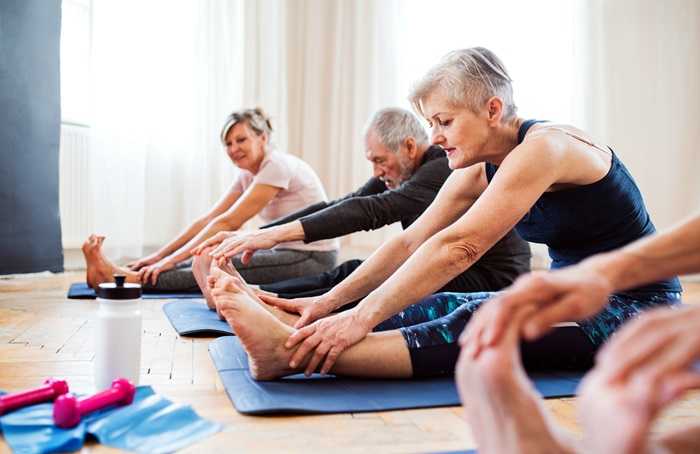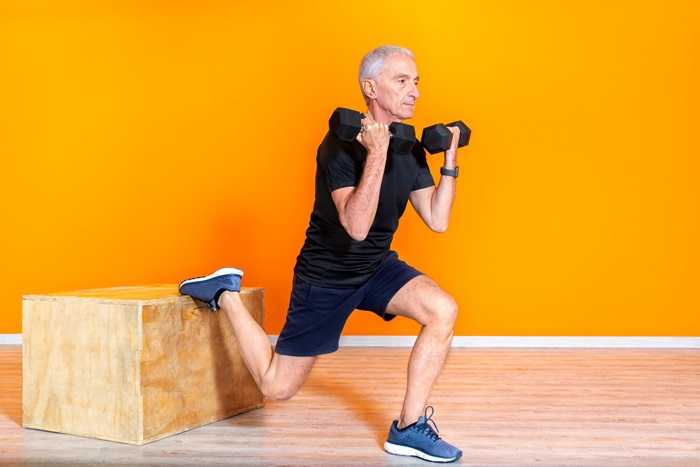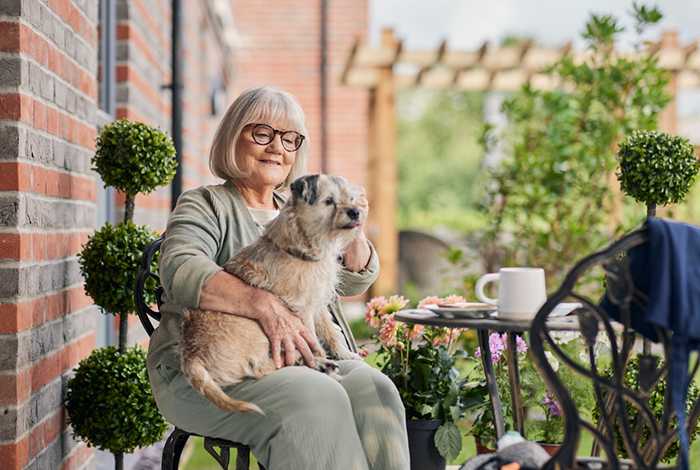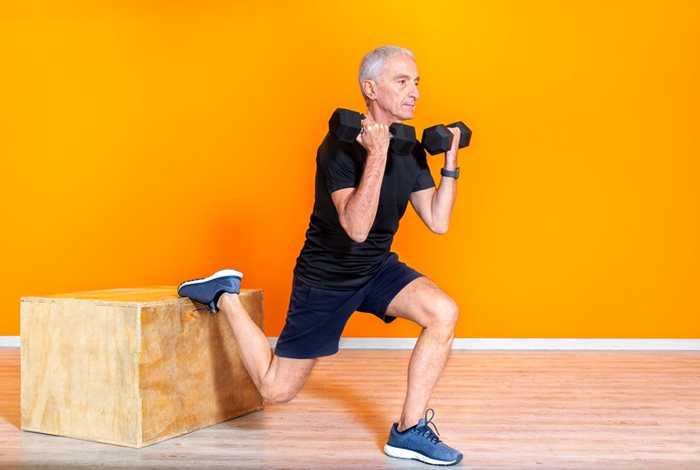Posted by Laura Sheath
The benefits of exercise in old age
The NHS says that older adults should do some type of physical activity daily - but why?
We all know that exercise is good for us but do you know how exercise affects older people specifically?
In this blog, we'll explore the benefits of exercise in old age and how retirement villages have adapted to promote well-being through sports, socialising and quality food.
So STRETCH and take a deep breath to relax as you read on. It might just enhance your parasympathetic nerve activity and release a wave of anti-stress hormones.

Why is exercise good as you get older?
Exercise isn’t just about weight loss, it’s about:
- better sleep
- looking after your brain
- sustaining social connections
- maintaining independence
- improving mental health
- reducing the risk of chronic diseases like cancer and Alzheimer’s
The effects of exercise on the brain of an older adult
Data from a review on The Effects of Acute Exercise on Mood, Cognition, Neurophysiology, and Neurochemical Pathways, suggests that physical activity can reduce the risk of various neurological diseases and protect the brain from the detrimental effects of ageing.
When you exercise, neurotransmitters are released including endorphins, endocannabinoids, and dopamine.
These chemicals make you feel happy, improve your mood and even reduce pain.
The brain depends on oxygen and glucose
Exercise increases oxygen supply to your brain, which is important because the brain depends on continuous blood flow to deliver oxygen, and nutrients (i.e., glucose, vitamins).
During acute aerobic exercise, glucose is broken down to lactic acid. When exercise transitions from aerobic to anaerobic, the “anaerobic threshold” is met.
At this point, the body is at its peak of oxygen uptake.
Since the brain depends on oxygen and glucose, increased capillary beds enhance their delivery to brain tissue and, consequently, facilitate neuroplasticity.
Exercise promotes neuroplasticity
What’s neuroplasticity?
The brain can change over time and that’s a good thing. Neuroplasticity is the term neuroscientists use to explain the brain creating new neural pathways so that essentially, the brain is rewired to function in some way that differs from how it previously functioned.
Neuroplasticity is particularly common in response to:
- learning
- a new experience
- exercise
- an injury
Structural and functional changes in the brain create a more efficient brain with a greater capacity to learn. An older brain that can learn new skills is crucial for longevity and independence.
Can exercise reduce the risk of dementia?
Alzheimer's disease is a progressive disorder that causes brain cells to slowly degenerate and die. This leads to a continuous decline in thinking, behavioural and social skills that disrupts a person's ability to function independently.
Alzheimer's disease is the most common cause of dementia globally.
Neuroinflammation caused by intracellular neurofibrillary tangles and extracellular amyloid deposits leads to atrophy of brain cells especially the hippocampus, which is associated with memory formation.
This atrophy leads to dementia and cognitive decline.
However, studies have shown that regular exercise can also help to reduce the accumulation of amyloid plaques in the brain, which have been linked to Alzheimer's disease.
As mentioned previously, exercise promotes neuroplasticity and increases oxygen supply to the brain, which can help to protect the brain from damage and degeneration.
Maintaining independence through exercise
The NHS recommends that adults aged 65 and over should:
- aim to be physically active every day, even if it's just light activity
- do activities that improve strength, balance and flexibility at least 2 days a week
- do at least 150 minutes of moderate-intensity activity a week or 75 minutes of vigorous-intensity activity if you are already active, or a combination of both reduce time spent sitting or lying down and break up long periods of not moving with some activity
If you've fallen or are worried about falling, doing exercises to improve your strength, balance and flexibility will help make you stronger and feel more confident on your feet.
Strength training for people over 65
Furthermore, the BDA (British Dietetic Association (BDA) released a report in 2023 on eating, drinking, and ageing well suggesting that older adults move and build strength two times a week, whether that be through lifting heavy bags, yoga, or going to the gym.

Why is rest important after exercise if you’re an older adult?
Rest is important after exercise for older adults because it allows the body to recover and repair itself. As we age, our bodies take longer to recover from physical activity, so it's important to give yourself enough time to rest after exercise.
Rest also helps to prevent injuries and overexertion, which can be more common in older adults. It's recommended that older adults take rest days in between workouts and listen to their bodies to avoid overdoing it.
Additionally, getting enough sleep is important for overall health and can also aid in post-exercise recovery.
Furthermore, resting after exercise gives your body time to feel hunger. A study on the chronic effects of exercise on appetite found that appetite perceptions typically return to resting control values within 30 to 60 min of exercise cessation.
Retirement villages centred around well-being
Retirement villages are a great option for older adults who want to stay active and healthy.
Retirement living operators such as Rangeford Villages feature a fully equipped gym, a swimming pool, and spa facilities.
These amenities make it easy for residents to stay active and healthy, regardless of their fitness level. In addition to sports and activities, retirement villages also offer a range of social events and clubs so people can stay connected with their community.
Typically, though not always, well-being retirement providers offer:
- Relaxed dining with a bar
- Tranquil indoor swimming pool
- Spa facilities
- Fully equipped gym
- Fitness classes
- Hobbies and clubs social calendar
- Lawn games
- Comfortable lounge areas
Find retirement villages that promote well-being near you
Living alone or without the prompt of an instructor or group might make it easier to forget about exercising.
If you're looking for a retirement living provider that promotes well-being and encourages exercise, Autumna can help you find the perfect fit.
Request a shortlist of retirement living operators near you for free or use the filters on Autumna to find retirement living developments with 'Well-being Facilities' or 'Sports & Activities'.
Alternatively, call our elder care experts on 01892 335 330 and they can help you compare retirement living providers in your area.
Receive a Free Retirement Property Shortlist!
Let our expert team of advisers get your search off to a great start.
Tell us a little about your needs and we'll send you a bespoke shortlist of retirement homes! Click the button below to begin, it takes just a few minutes.
Other articles to read
From the blog

Retirement Living
The Benefits of Renting in Retirement
May 6th, 2025
Renting a retirement property can provide a fast and flexible way to enjoy life in a carefree, low-maintenance setting with access to all the services you require.

Retirement Living
Renting a Retirement Living Flat in the UK: A Step-by-Step Guide
May 13th, 2024
When you want to enjoy the lifestyle that a retirement village offers but don’t want to commit to buying a property, then this step-by-step guide to renting a retirement flat could help you.

Retirement Living
The benefits of exercise in old age
April 27th, 2024
Increasing numbers of older people are choosing to live in retirement villages that promote exercise and well-being. How does exercise affect older adults?






